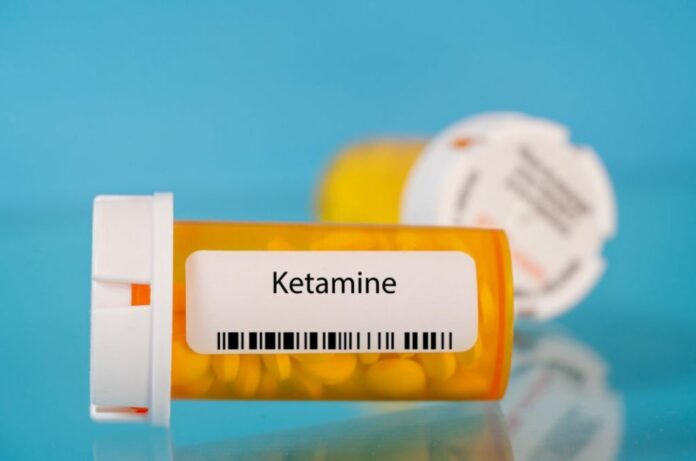Ketamine, a compound commonly utilized for pain management and anesthesia in medical and veterinary procedures, has garnered increasing attention as a potential treatment for mental health disorders like severe depression and post-traumatic stress disorder.
Although the precise mechanism of action in the brain is not fully understood, ketamine is recognized for its ability to block specific receptors located in the membranes of certain nerve cells.
A recent study conducted by researchers from Mass General Brigham has revealed compelling findings regarding the use of subanesthetic intravenous ketamine in the treatment of non-psychotic, treatment-resistant depression. The study demonstrated that ketamine was both effective and non-inferior to electroconvulsive therapy (ECT). The results of this research have been published in the New England Journal of Medicine.
“ECT has been the gold standard for treating severe depression for over 80 years,” explains Amit Anand, Professor of Psychiatry at Harvard Medical School. “But it is also a controversial treatment because it can cause memory loss, requires anesthesia, and is associated with social stigma. This is the largest study comparing ketamine and ECT treatments for depression that has ever been done, and the only one that also measured impacts to memory.”
Major Depressive Disorder (MDD) is a leading cause of disability worldwide, impacting a substantial number of adults in the United States, with an estimated 21 million affected. Electroconvulsive therapy (ECT) is a treatment method that involves inducing controlled seizures through electrical stimulation of the brain. On the other hand, ketamine, an FDA-approved low-cost dissociative drug, is commonly used as a sedative, analgesic, and general anesthetic. Previous research has indicated that administering low doses of ketamine may have rapid antidepressant effects for individuals with MDD.
The trial, conducted from March 2017 to September 2022 across five sites, involved 403 patients who were randomly assigned in a one-to-one ratio to receive either ECT three times per week or ketamine twice per week for a duration of three weeks. Patients were then followed up for a period of six months after the treatment. During the follow-up period, the patients completed a self-assessment questionnaire to evaluate their depressive symptoms. The questionnaire also included memory tests and inquiries about their quality of life.
The findings of the study revealed that 55 percent of the patients receiving ketamine and 41 percent of those receiving ECT reported a significant improvement of at least 50 percent in their self-reported depressive symptoms. Moreover, both groups reported a sustained improvement in their self-reported quality of life throughout the six-month monitoring period. However, ECT treatment was associated with memory loss and musculoskeletal adverse effects, while ketamine treatment did not show any side effects other than a transient experience of dissociation during the treatment session.
“For the ever-growing number of patients who do not respond to conventional psychiatric treatments and need a higher level of care, ECT continues to be the most effective treatment in treatment-resistant depression,” adds lead author Murat Altinay. “This study shows us that intravenous ketamine was non-inferior to ECT for treatment of non-psychotic treatment resistant depression and could be considered as a suitable alternative treatment for the condition.”
This groundbreaking study represents the largest real-world comparative effectiveness trial to date, examining the use of electroconvulsive therapy (ECT) versus ketamine for the treatment of depression. With a patient-centered approach, the study incorporated three types of independent depression ratings—patient, rater, and clinician—without actively seeking out participants.
The authors acknowledge that their findings rely on self-reported outcomes, and the open-label design of the trial may have influenced response rates. However, the patient-centered nature of the study and its real-world design can also be considered strengths, as they facilitate the translation of the findings into clinical practice more effectively.
Moving forward, Anand’s research team is currently engaged in a follow-up study. This subsequent investigation aims to compare the effects of ECT and ketamine treatments specifically for patients experiencing acute suicidal depression. By exploring the impact of these treatments on this particular population, the researchers hope to determine if the promising results observed in the initial study can be replicated.
“People with treatment-resistant depression suffer a great deal, so it is exciting that studies like this are adding new options for them,” adds Anand. “With this real-world trial, the results are immediately transferable to the clinical setting.”
Source: 10.1056/NEJMoa2302399
Image Credit: Getty
